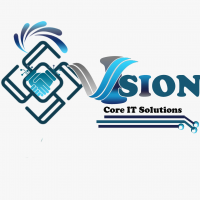How Software IT Companies Are Driving Innovation in Healthcare

Strong 8k brings an ultra-HD IPTV experience to your living room and your pocket.
The healthcare sector, traditionally known for its reliance on manual processes and legacy systems, has experienced a seismic shift in recent years. With the growing complexity of patient care, administrative tasks, and the ever-increasing need for data management, healthcare organizations have turned to technology to improve efficiency, enhance patient outcomes, and reduce costs. Among the key players driving this transformation are software IT companies, whose innovations are revolutionizing the healthcare landscape. In this article, we will explore how software IT companies are driving innovation in healthcare and the ways their solutions are shaping the future of the industry.
The Role of Software IT Companies in Healthcare Innovation
Software IT companies are contributing to healthcare innovation in several critical ways. These companies develop the software and technological infrastructure that powers key healthcare services, such as electronic health records (EHRs), telemedicine platforms, and AI-driven diagnostics. They are also pioneering new technologies that improve patient engagement, streamline administrative workflows, and enable more efficient use of resources. By focusing on automation, data analytics, machine learning, and cloud computing, software IT companies are making healthcare systems smarter, more interconnected, and more patient-centric.
Advancing Telemedicine and Virtual Care
Telemedicine, once considered a niche aspect of healthcare, has become a mainstream solution, especially in the wake of the COVID-19 pandemic. Software IT companies have played a pivotal role in this shift by developing and enhancing telemedicine platforms that enable healthcare providers to offer remote consultations, follow-ups, and ongoing care to patients. Telemedicine solutions have proved invaluable for patients in rural or underserved areas, individuals with mobility issues, and those who need continuous care but cannot attend in-person appointments.
Software IT companies have not only improved the functionality of video conferencing tools but also integrated telemedicine platforms with other healthcare technologies, such as EHRs and patient portals. This integration ensures that patient information is securely shared across platforms, allowing healthcare providers to make informed decisions during virtual consultations. Additionally, innovations such as remote patient monitoring, where patients use wearables or mobile devices to transmit health data to their doctors, are made possible by software IT solutions. This helps track vital signs, manage chronic conditions, and provide personalized care plans.
Artificial Intelligence and Machine Learning in Diagnostics
One of the most exciting areas where software IT companies are driving healthcare innovation is the use of artificial intelligence (AI) and machine learning (ML) to enhance diagnostic capabilities. AI-driven tools are capable of analyzing vast amounts of data much faster and more accurately than human clinicians, helping to identify conditions at an earlier stage when they are easier to treat. For example, AI applications in radiology can analyze medical images, such as X-rays, MRIs, and CT scans, to detect abnormalities like tumors, fractures, or other conditions with remarkable precision.
In addition to imaging, AI-powered algorithms are also being used to detect patterns in patient data, such as lab results, genetic information, and medical histories, to predict the likelihood of diseases. Software IT companies are also developing decision support systems that assist doctors in diagnosing complex conditions by suggesting possible diagnoses based on a patient’s symptoms and medical background. These innovations not only improve diagnostic accuracy but also reduce the time it takes to arrive at a diagnosis, allowing for quicker intervention and better patient outcomes.
Streamlining Administrative Processes
Administrative tasks in healthcare—such as billing, scheduling, and claims processing—are often time-consuming and prone to human error. Software IT companies are driving efficiency in these areas by developing automation tools that help streamline these processes. Robotic process automation (RPA) tools are particularly valuable in reducing the burden of repetitive tasks. For instance, RPA can be used to automate the creation and submission of insurance claims, speeding up reimbursements for healthcare providers and reducing administrative overhead.
Cloud-based scheduling systems are another example of how software IT companies are enhancing operational efficiency. These systems allow patients to schedule appointments online, receive reminders, and make changes to appointments, all while integrating with healthcare providers' back-end systems. This reduces the likelihood of missed appointments and ensures that patient flow remains optimized. Furthermore, software IT solutions help healthcare providers track inventory, manage medical supplies, and ensure that resources are available when needed, contributing to more efficient care delivery.
Enhancing Patient Engagement and Experience
Patient engagement is an essential factor in improving healthcare outcomes. Software IT companies are developing tools that empower patients to take control of their health, communicate with their healthcare providers, and track their progress. Mobile applications, patient portals, and digital health platforms allow patients to access their medical records, schedule appointments, and communicate directly with healthcare providers, all from the convenience of their smartphones.
These tools also enable healthcare organizations to deliver more personalized care. By integrating patient data with health apps, wearable devices, and smart home technologies, software IT companies are helping healthcare providers gain a more comprehensive view of a patient’s health. This allows for more tailored treatments, lifestyle recommendations, and ongoing care plans. For example, a patient with diabetes might use a mobile app to track their blood sugar levels and receive real-time feedback from their healthcare provider, enabling more effective management of the condition.
Moreover, digital health platforms enable healthcare providers to engage patients in their treatment plans, increasing adherence to medication and improving overall health outcomes. Through gamification and reward systems, software IT companies are encouraging patients to stay on top of their health goals, whether it’s losing weight, exercising more, or quitting smoking.
Big Data and Analytics in Healthcare
The healthcare industry generates vast amounts of data every day, from patient records to clinical trials and medical research. However, harnessing this data to improve care and optimize decision-making has long been a challenge. Software IT companies are developing sophisticated analytics platforms that process and analyze this massive volume of data to uncover insights that can drive better patient care and outcomes.
Predictive analytics, for example, allows healthcare providers to identify at-risk patients and intervene before conditions worsen. By analyzing historical data and patient trends, AI and machine learning algorithms can predict when a patient might experience a health crisis, such as a heart attack or stroke, and allow for preventive measures to be taken. Furthermore, data analytics helps healthcare organizations optimize their operations by identifying inefficiencies, predicting patient demand, and improving resource allocation.
Another area where big data is transforming healthcare is in the field of drug discovery and clinical trials. Software IT companies are developing platforms that analyze genomic data, patient outcomes, and research findings to speed up the development of new drugs and treatments. By utilizing advanced analytics to process vast datasets, companies can identify promising drug candidates and biomarkers more quickly, potentially shortening the time required for clinical trials and bringing new therapies to market faster.
Blockchain Technology for Healthcare Security
Security and privacy are paramount in the healthcare industry due to the sensitive nature of patient information. Software IT companies are leveraging blockchain technology to improve data security and ensure the integrity of medical records. Blockchain provides a decentralized, tamper-proof ledger that ensures patient data is securely stored and shared between healthcare providers without the risk of unauthorized access or data breaches.
For instance, blockchain can be used to track the history of a patient’s medical records, including diagnoses, treatments, and prescriptions, across different healthcare providers. This ensures that healthcare professionals have access to complete and accurate information, reducing the risk of errors and improving care coordination. Blockchain technology also provides a secure way to manage the growing number of health-related devices and applications, ensuring that data transmitted from wearables or sensors is encrypted and protected from malicious actors.
Facilitating Global Health Initiatives
Software IT companies are also playing a crucial role in advancing global health initiatives, particularly in low-resource settings. Through the use of telemedicine, mobile health apps, and cloud-based platforms, healthcare services can be extended to underserved populations in remote areas. Software IT companies are providing the technological backbone for telemedicine consultations, mobile clinics, and health monitoring systems that can operate in environments with limited infrastructure.
Moreover, software solutions are enabling more efficient management of healthcare resources in developing countries. For example, cloud-based systems allow for the centralization of health data, making it easier to track outbreaks of diseases, manage medical supplies, and coordinate emergency response efforts. These innovations have the potential to improve health outcomes in some of the most resource-poor regions of the world.
Conclusion
Software IT companies are at the forefront of driving innovation in healthcare, developing solutions that improve patient care, streamline operations, enhance data security, and enable more personalized, efficient treatments. From AI-powered diagnostics to telemedicine platforms and big data analytics, these innovations are transforming how healthcare is delivered and experienced. As technology continues to advance, software IT companies will remain essential in shaping the future of healthcare, making it more accessible, efficient, and patient-centric. The ongoing collaboration between the tech and healthcare industries holds immense promise for improving the quality of care and the health outcomes of individuals around the world.
Note: IndiBlogHub features both user-submitted and editorial content. We do not verify third-party contributions. Read our Disclaimer and Privacy Policyfor details.


